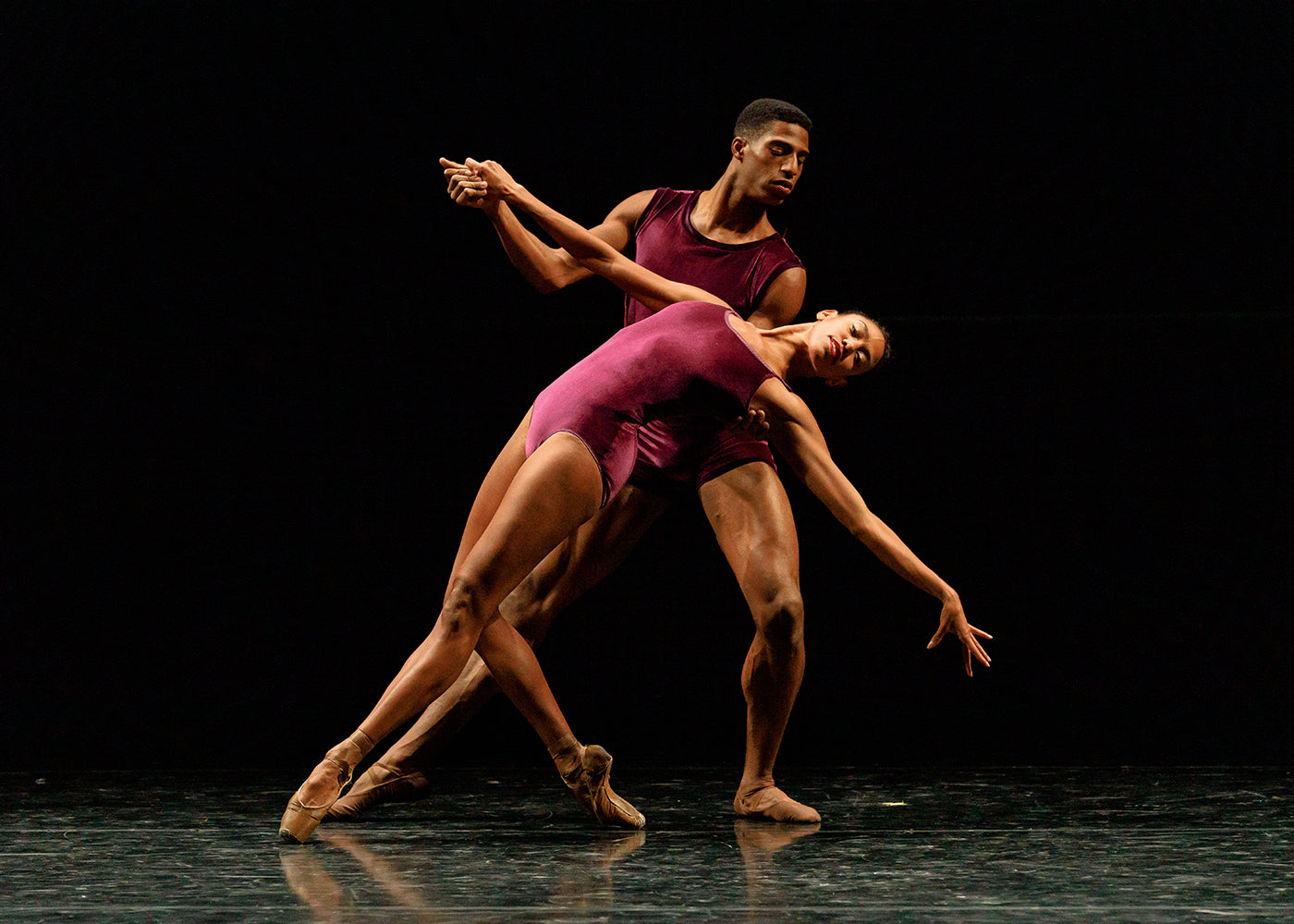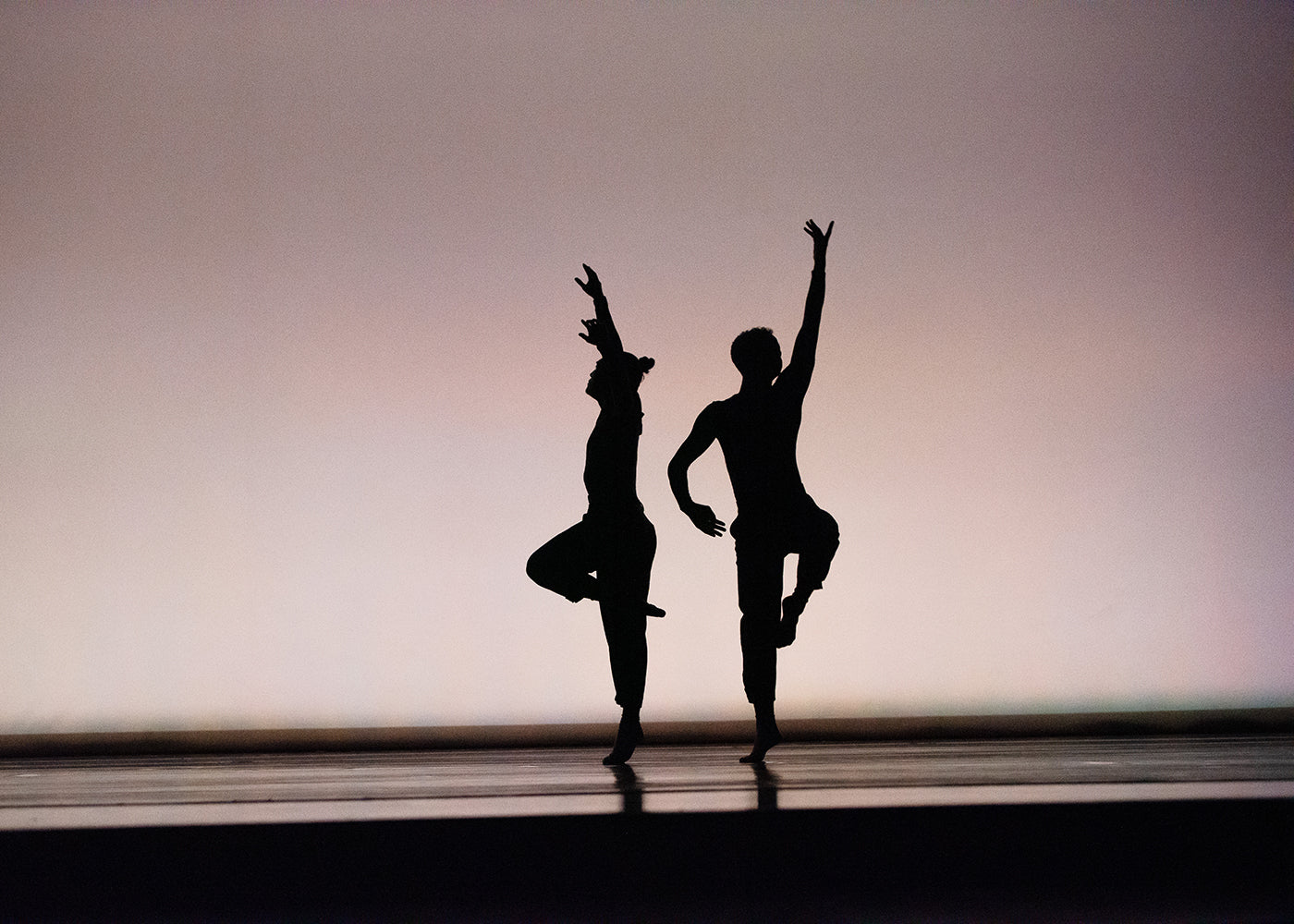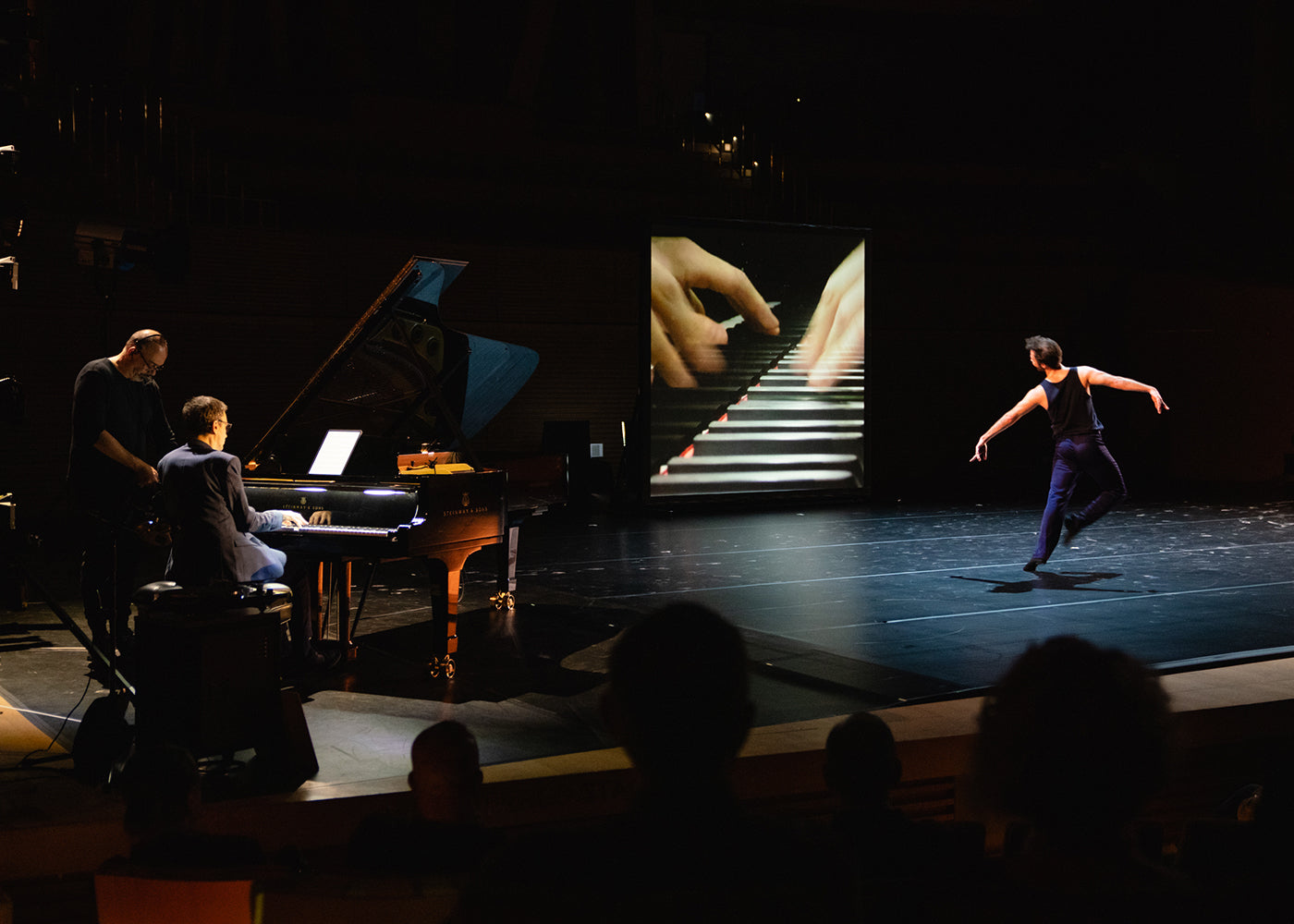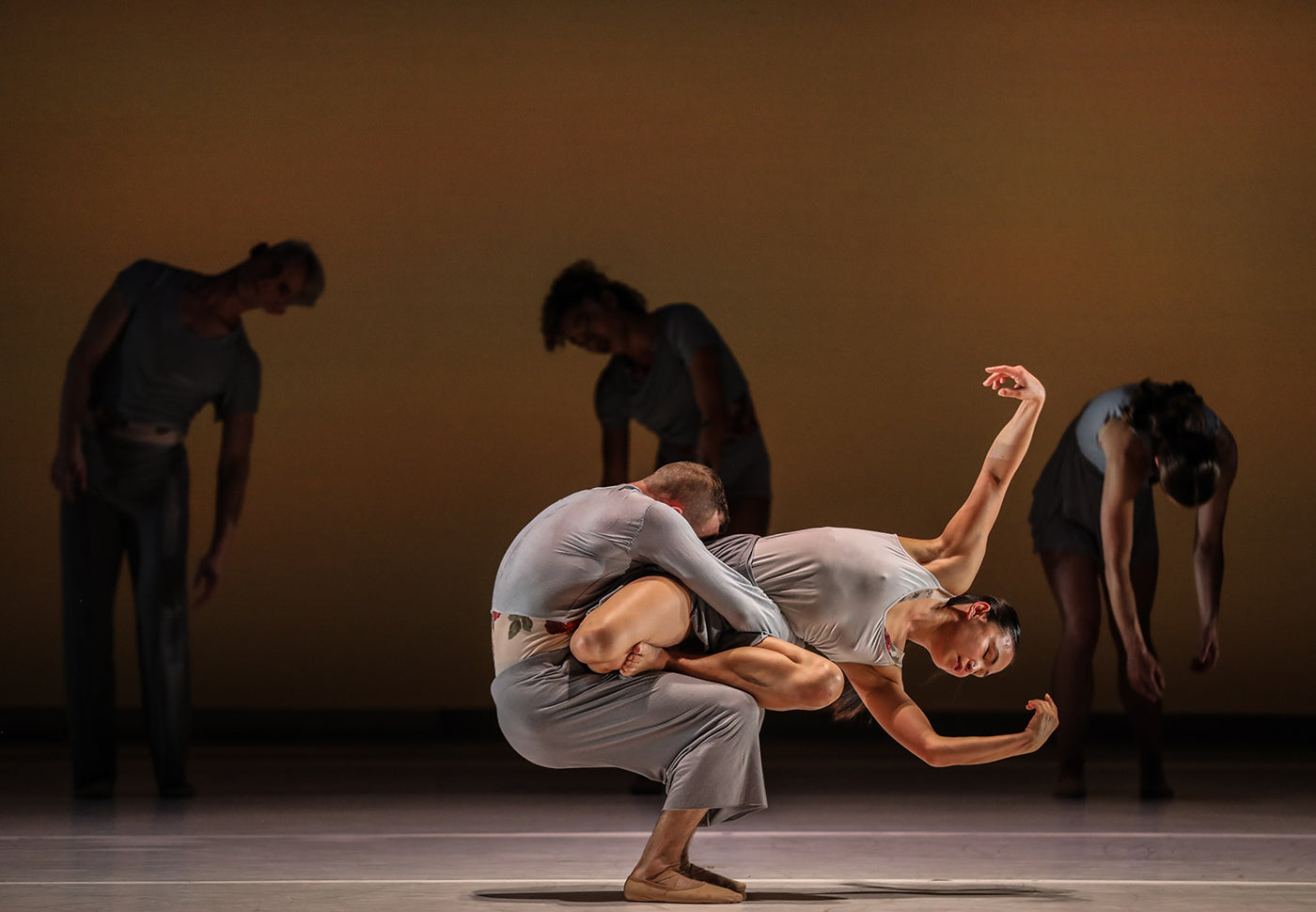It's the early '40s. London is on the cusp of the Second World War. Sirens sound out, search lights are everywhere. Yet, one family remains stoical in the face of adversity. The ever wonderful Ashley Shaw's Cinders is not a passive maid, but rather, a strong-willed and bookish schoolgirl who finds agency in slipping into a pair of glamorous silver shoes in much a similar way as Victoria Page, the Moira Shearer character in The Red Shoes—the shoes 'find her,' as much as she them. She's a glorious creation, and—typically Bourne—lustily parodying her glam, man-eating stepmother Sybil (an imperious, hilarious Anjali Mehra, part Joan Crawford, part Isabella Blow) in fur and sexy heels as she waltzes suggestively with a shop dummy (another typically Bourne touch too, reminiscent of his original “Nutcracker!” ) imagining him as a real man. She also tends to her wheelchair-bound father Robert (Alan Vincent)—the sole carer, as evinced in their sweet scenes together, as the rest of the family seem to regard him as an inconvenience.
Indeed, it's Shaw's Ginger Rogers—homaging solos that are the first suggestion of Cinders' rich inner life—even as London crumbles, she swoops, high kicks and swoons to Prokofiev's powerful score. In her dowdy grey clothes, she is wilful and stubborn, more than a match for her horrible step-sisters who seem as charmless and misguided as their mother. And the step brothers range from shy and romantic, to creepy foot fetishist, in some darkly comedic sequences.
There is a charming jitterbug / lindyhop scene, as the whole ensemble springs drunkenly to life, and much fun to be had in the now Grace Kellyesque Cinderella's macho lattice-work of admirers—five men form an disorderly chain at her back. Even a greasy cabaret singer does a little soft shoe shuffle in order to catch her eye. An assembly line of dancers is mocking the motion of the munitions factory, finding joy before the bomb drops. Soldiers kiss their girls, and strangers grope each other in the dark. There's the first blush of young gay romance too.
But, as evinced by Lez Brotherston's wildly inventive and stunning set design, times are desperate. Only the winding clock isn't riven by destruction—a symbol of time running out. There are sex workers strutting in flamenco flirtations, and gangs of priapic spivs and thugs with dubious limps patrol along the underground station. Dominic North's dashing suitor Harry (very Michael Redgrave with his little moustache and gentlemanly disposition) is a shell-shocked fighter pilot who barely scrapes through his courtship with Cinders, making their tender, tempestuous first movements together all the more poignant. Battersea is twinkly, especially as the bombs illuminate it. A ghostly Café De Paris, strewn with dead bodies, is momentarily brought back to life by Liam Mower's mutable, sexy Angel—a leaping, bouncing figure who is at once Fairy Godfather and Angel of Death, an ever-present symbol of the beauty of youth, and mortality. His arms mimic the clock hands eroding time.
And even if it takes a while to settle into the narrative ballet proper, and the ballroom scenes are just a shade too long, it's a gorgeously staged show which is most effective when contemplating the humanity trapped underneath the rubble, underneath the stars of old London town. It's dreamy, contemplative and life-affirming, as well as playful.
And now, here's a word from our sponsors . . .









comments